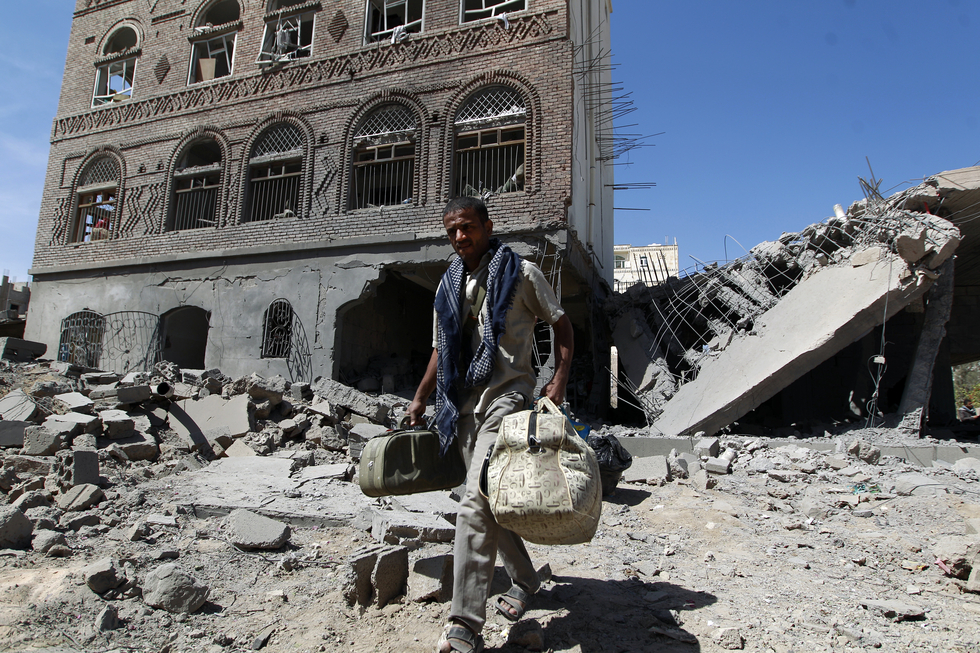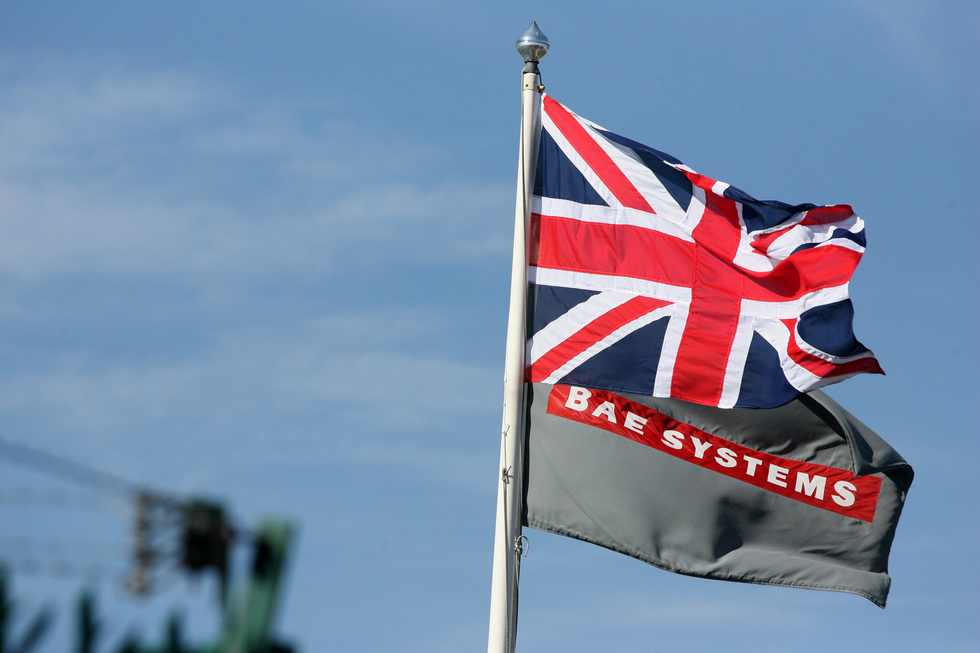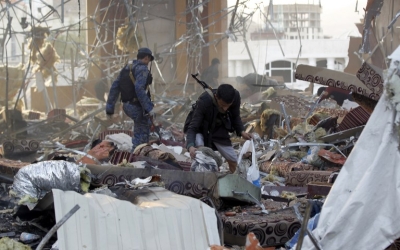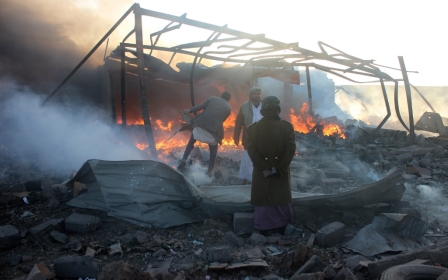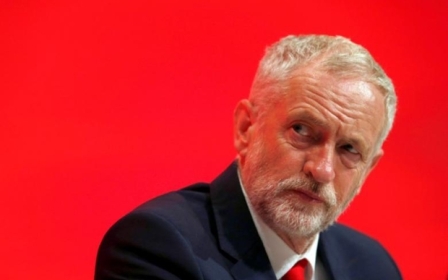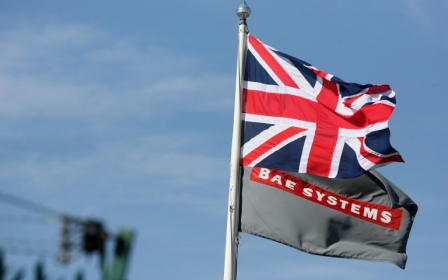See no evil: How the UK government tries not to know about bombing civilians in Yemen
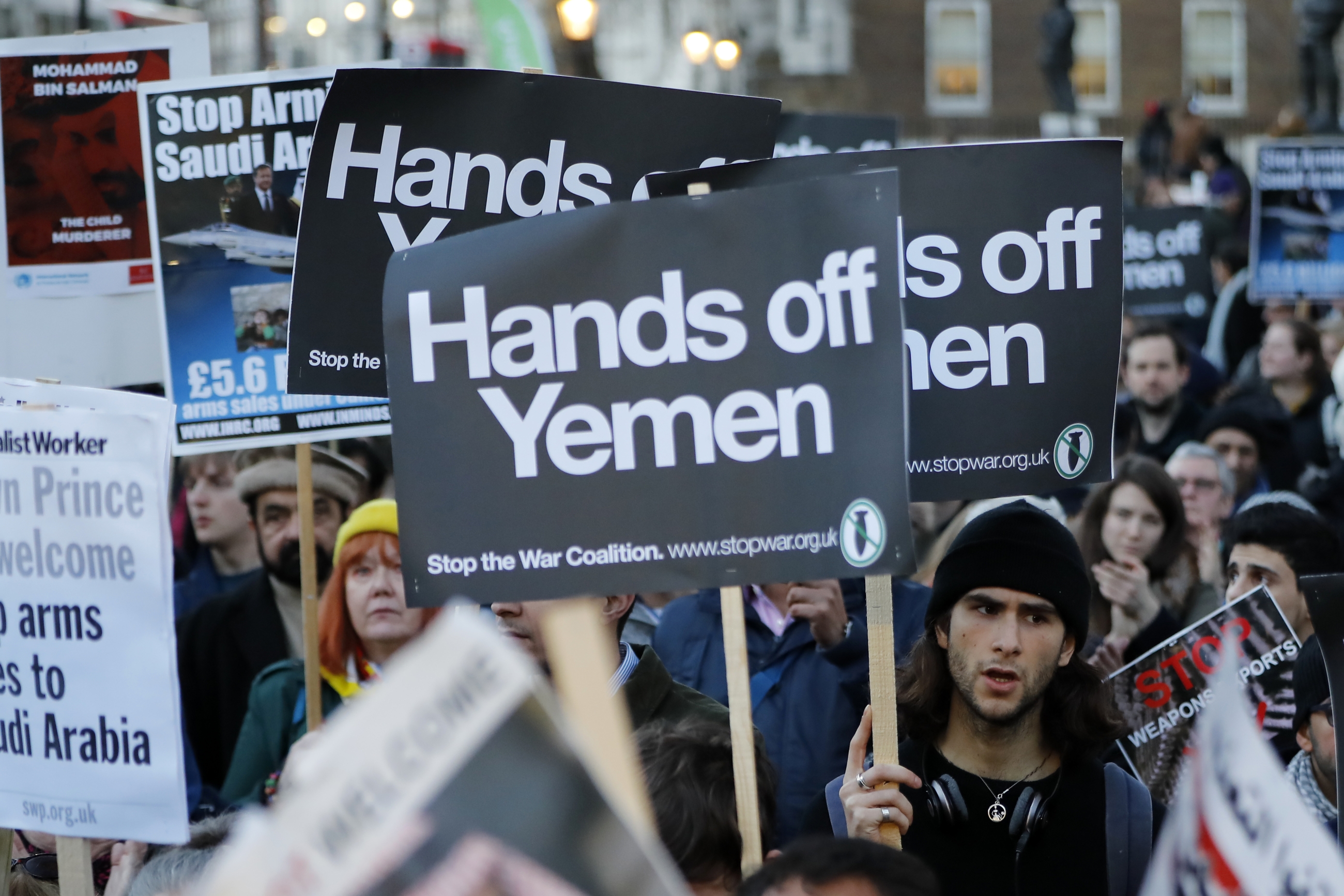
Last week’s landmark decision by the Court of Appeal that UK arms sales to Saudi Arabia are unlawful brings some much-needed accountability to the war in Yemen.
An unmitigated humanitarian disaster has been visited on the country: more than 91,000 people have been killed, approximately 11,700 of them civilians killed in targeted attacks. The Saudi-led coalition and its allies are responsible for over two-thirds of these civilian deaths.
Tip of the iceberg
These deaths are just the tip of the iceberg: the population has been subjected to famine and cholera through an economic blockade and attacks on healthcare and infrastructure. Yemen’s cultural heritage has also been directly attacked, as have schools, weddings and funerals that make up the fabric of social life.
Talk of proxy wars and the spectre of Iranian-Saudi regional rivalry has been ramped up on all sides of the war
Talk of proxy wars and the spectre of Iranian-Saudi regional rivalry has been ramped up on all sides of the war, serving primarily political rather than analytical purposes.
New MEE newsletter: Jerusalem Dispatch
Sign up to get the latest insights and analysis on Israel-Palestine, alongside Turkey Unpacked and other MEE newsletters
Nonetheless, without reducing the complexities of the war, it is important to recognise that as principal arms suppliers to the Saudi-led coalition, the USA and the UK, have been centrally involved in the conflict, providing diplomatic cover for the coalition’s abuses as well as the weapons with which to commit them.
The immediate counter-argument is that the Houthis are also committing violations of international law and doing so with Iranian support. But Iranian support for the Houthis has become a self-fulfilling prophecy as the war has continued, and the Houthis’ likely war crimes are no reason for the Saudi-led coalition not to be held accountable for its own violations.
No concluded assessment
As a long-standing observer of UK arms export policy, one particular element of the Court of Appeal’s decision interests me. Not only did the government make “no concluded assessments” of whether the coalition had violated international humanitarian law (IHL), it “made no attempt to do so.”
There seems to have been an undocumented decision in the early months of 2016 that there would no attempt to answer this question about whether Saudi Arabia had breached IHL. The MoD’s database of allegations of breaches of IHL originally included a column headed “IHL Breach” that was removed without note or written justification.
Thus, not only was the government not assessing whether the Saudi-led coalition was breaching IHL, it was also quietly removing the means to do so, and not creating a paper trail by which this change could be documented or followed.
Key strategies
Whether by design or incompetence, this undocumented change illustrates one of the key strategies used by the UK government to try to manage controversy over its arms export policy and to appear to respect international law whilst continuing to supply weapons to the Saudi-led coalition.
This strategy has centred on active attempts not to know, and not to be seen to know, about likely or possible violations of IHL in the war in Yemen.
The government’s immediate response was to downplay the significance of the judgment
The government’s tactics have included the mobilisation of doubt and ambiguity about specific incidents, often through reference to secret, ostensibly superior information; an emphasis on the friendly relationship with Saudi Arabia that is mobilised to suggest that any possible violations were accidental and that the Saudis are serious about improving their targeting practices; and corrections to the parliamentary record and attempts at the suppression of information.
The goal of this strategy is to be able to continue to supply weapons to Saudi Arabia despite a clear commitment not to transfer weapons where there is a clear risk they might be used in serious violations of IHL, and to claim the mantle of law-abiding respectability while doing so.
Downplaying the ruling
The Court of Appeal’s decision should put paid to this effort. Yet the government’s immediate response was to downplay the significance of the judgment, try to present it as a technicality, and assuage criticism by promising that no new licences will be granted to members of the Saudi-led coalition and a review will be conducted.
But open licences granted in 2013 and 2014 that allow the unlimited transfer of bombs and missiles are still in operation and deliveries under existing licences are not suspended. Trade Secretary Liam Fox has indicated that new decisions would not necessarily be any different to old ones.
So now the hard work begins of trying to get the government to respect the decision and change its practice.
Core elements
There are three core elements to a response that would respect the legal decision. First, a transparent review of the process by which decisions are made, including an explanation of how the government assesses the link between past violations and future risk.
Second, an inquiry into how unlawful decisions came to be made, including the publication of legal advice and ministerial direction. Third, a commitment to suspend deliveries under existing licences as well as a refusal of new licences.
Given that the UK’s likely next prime minister, Boris Johnson, has already been revealed to have given approval when he was foreign secretary for export licences to Saudi Arabia in the midst of ongoing attacks on civilian entities, and his opponent Jeremy Hunt, the current foreign secretary, has claimed it would be “morally bankrupt” not to sell weapons to Saudi Arabia, the task will be a tough one.
Nonetheless, the legal decision opens the door for accountability for the government’s reckless policy, in which it has been unwilling to pay attention to unlawful civilian harm and indifferent to the consequences of its actions.
The views expressed in this article belong to the author and do not necessarily reflect the editorial policy of Middle East Eye.
Middle East Eye delivers independent and unrivalled coverage and analysis of the Middle East, North Africa and beyond. To learn more about republishing this content and the associated fees, please fill out this form. More about MEE can be found here.



